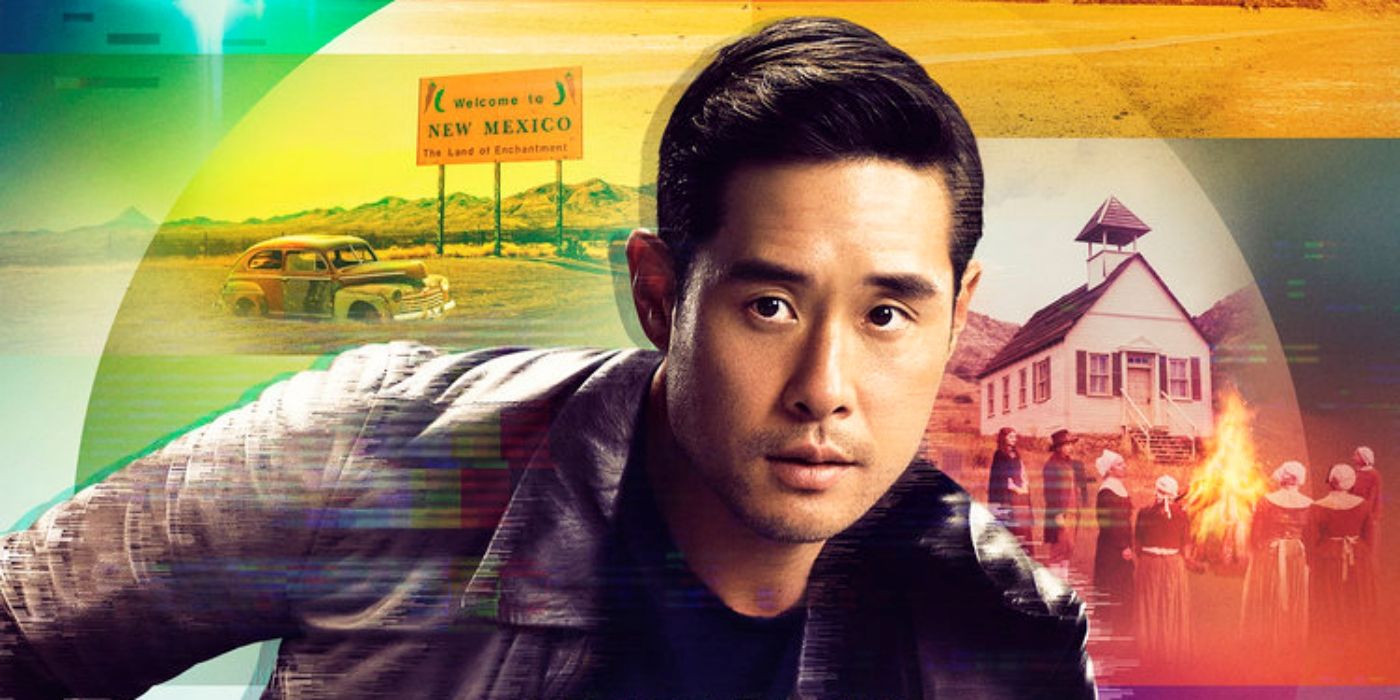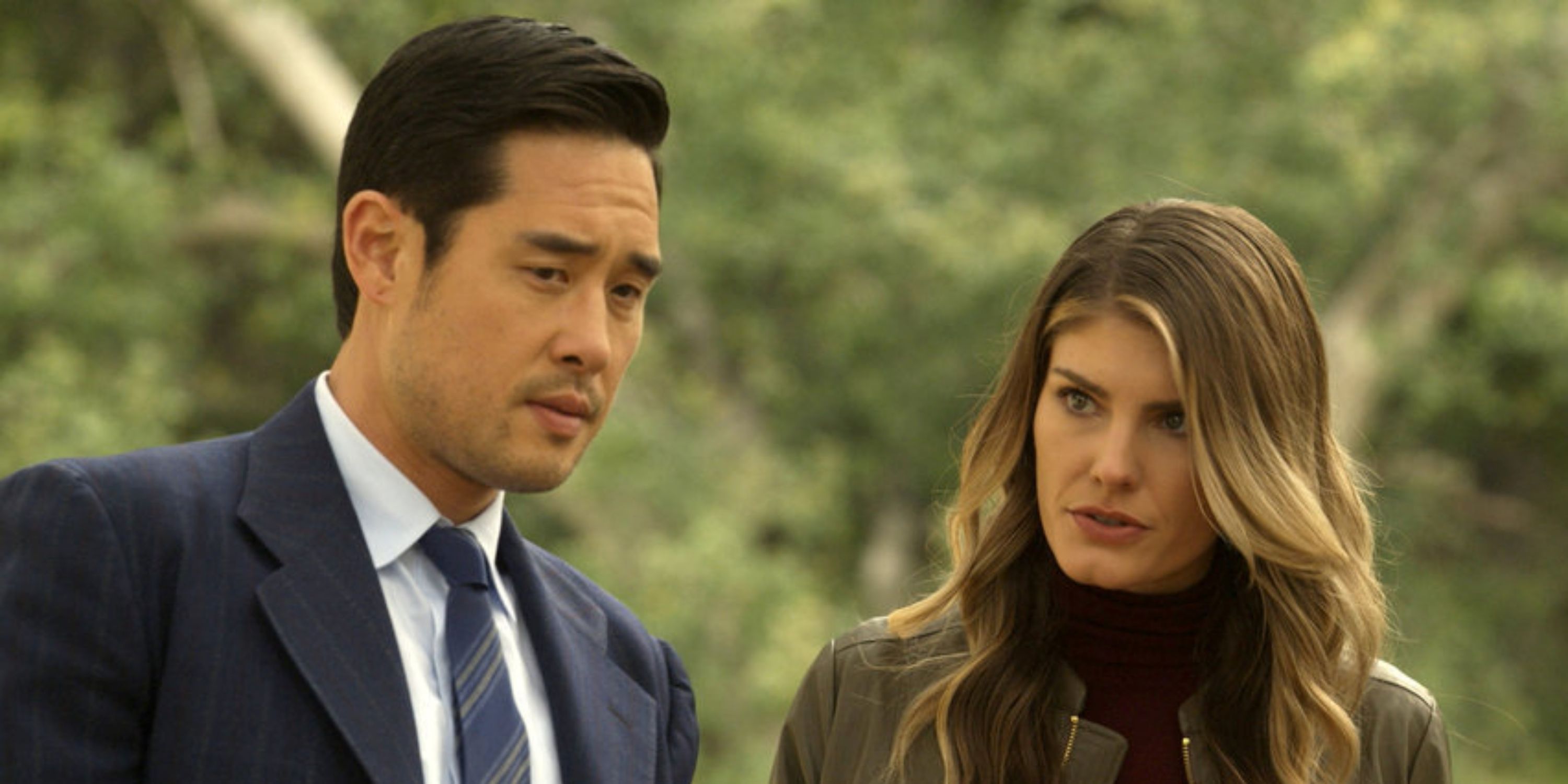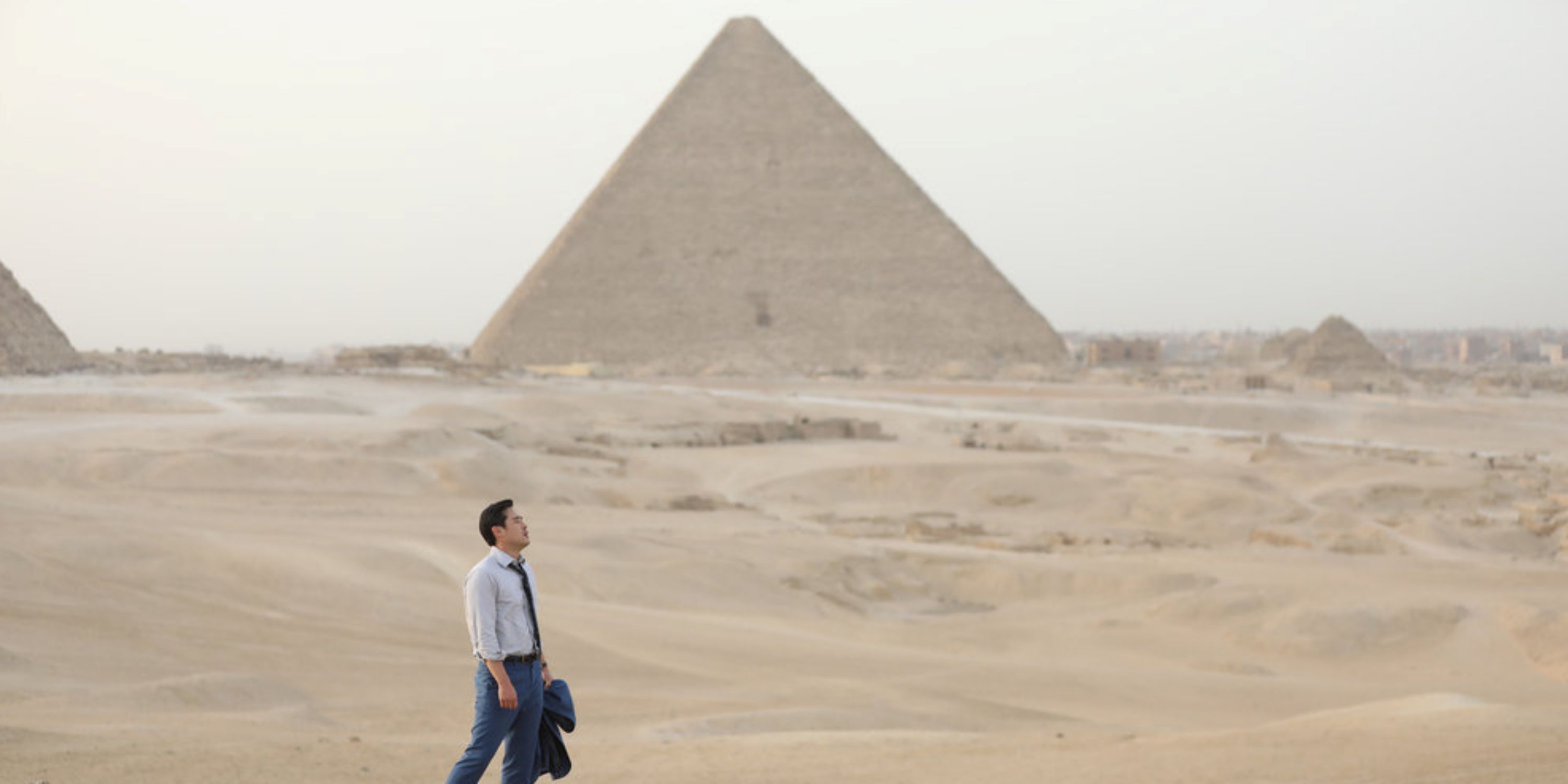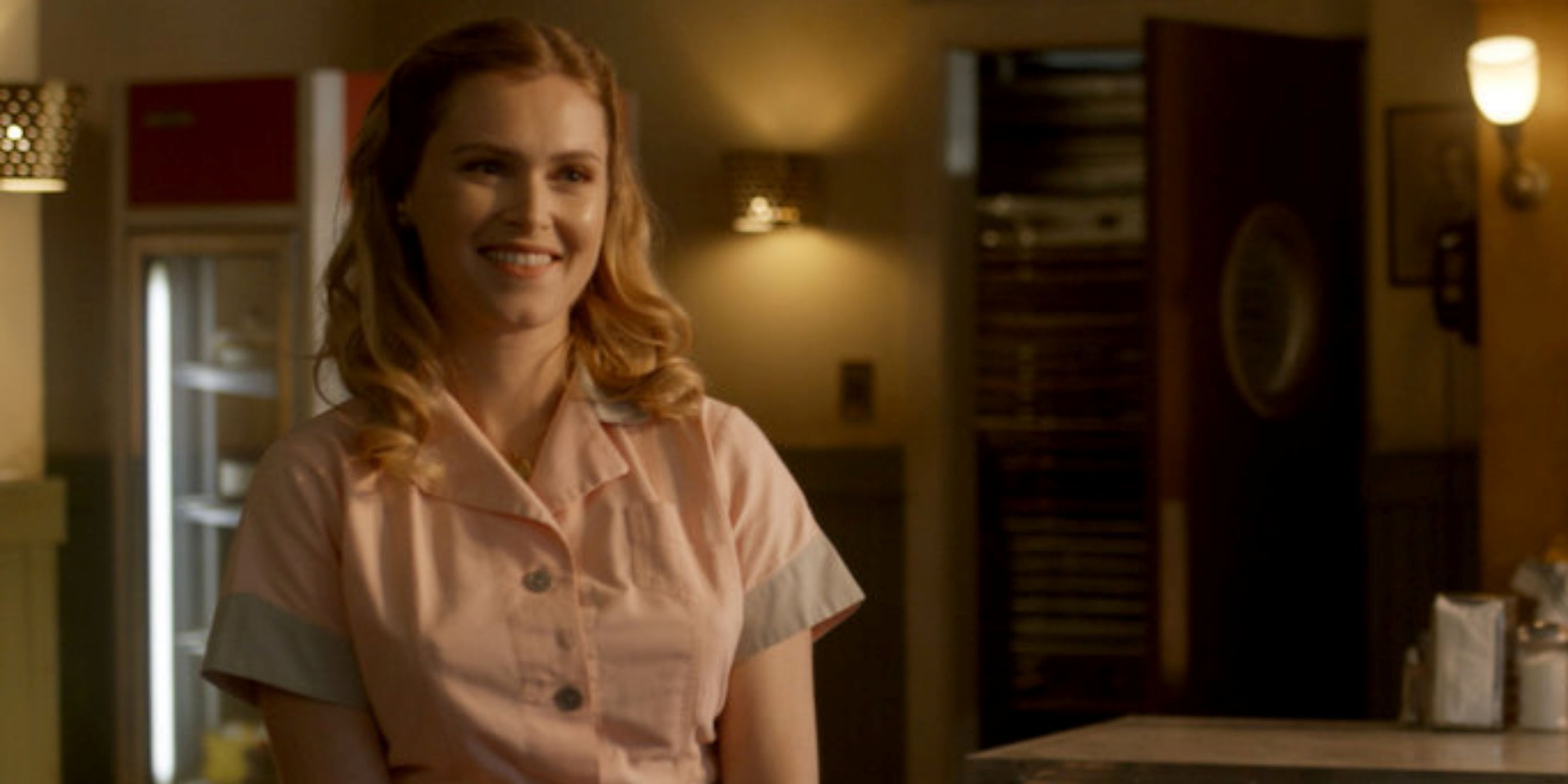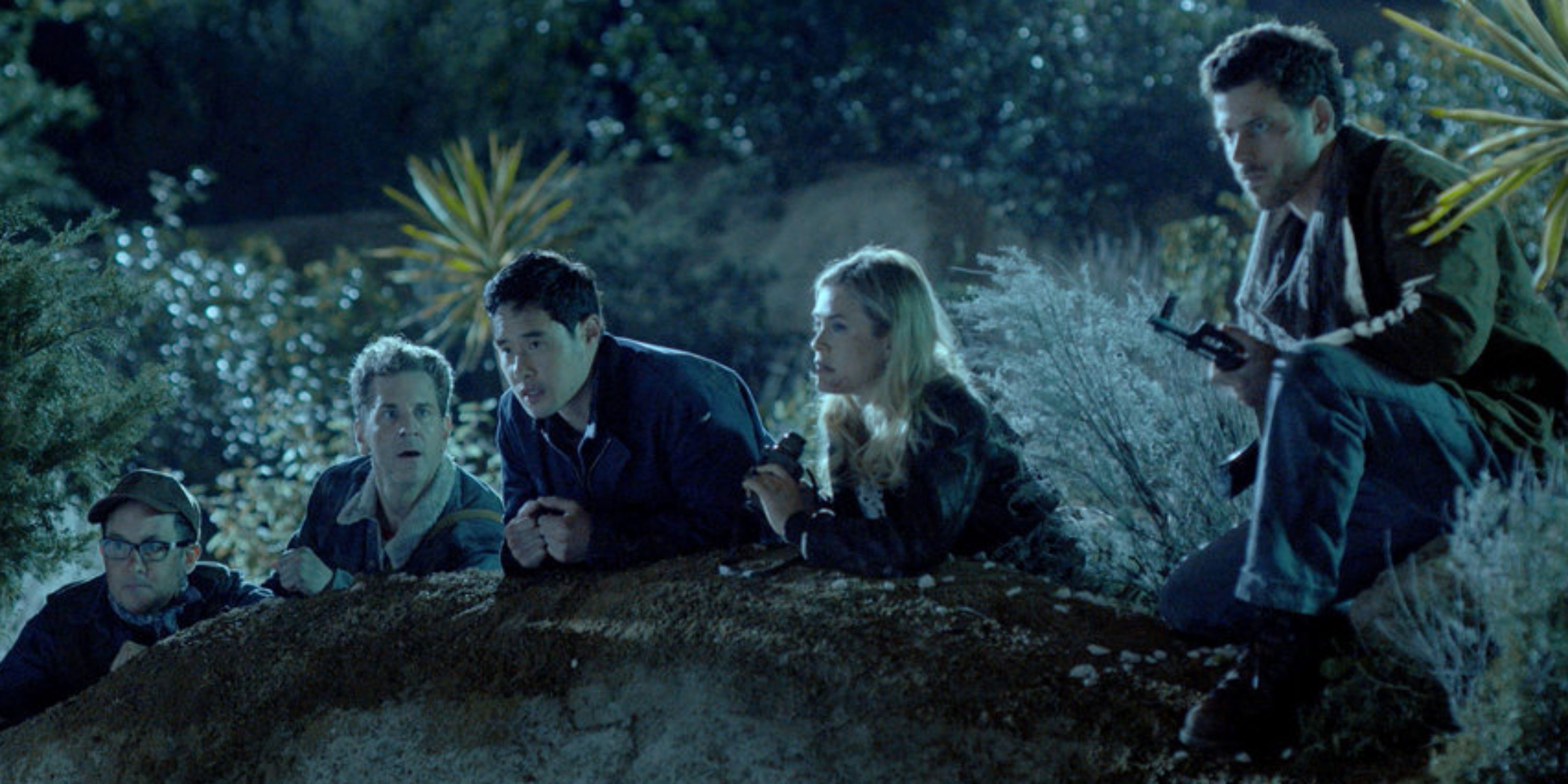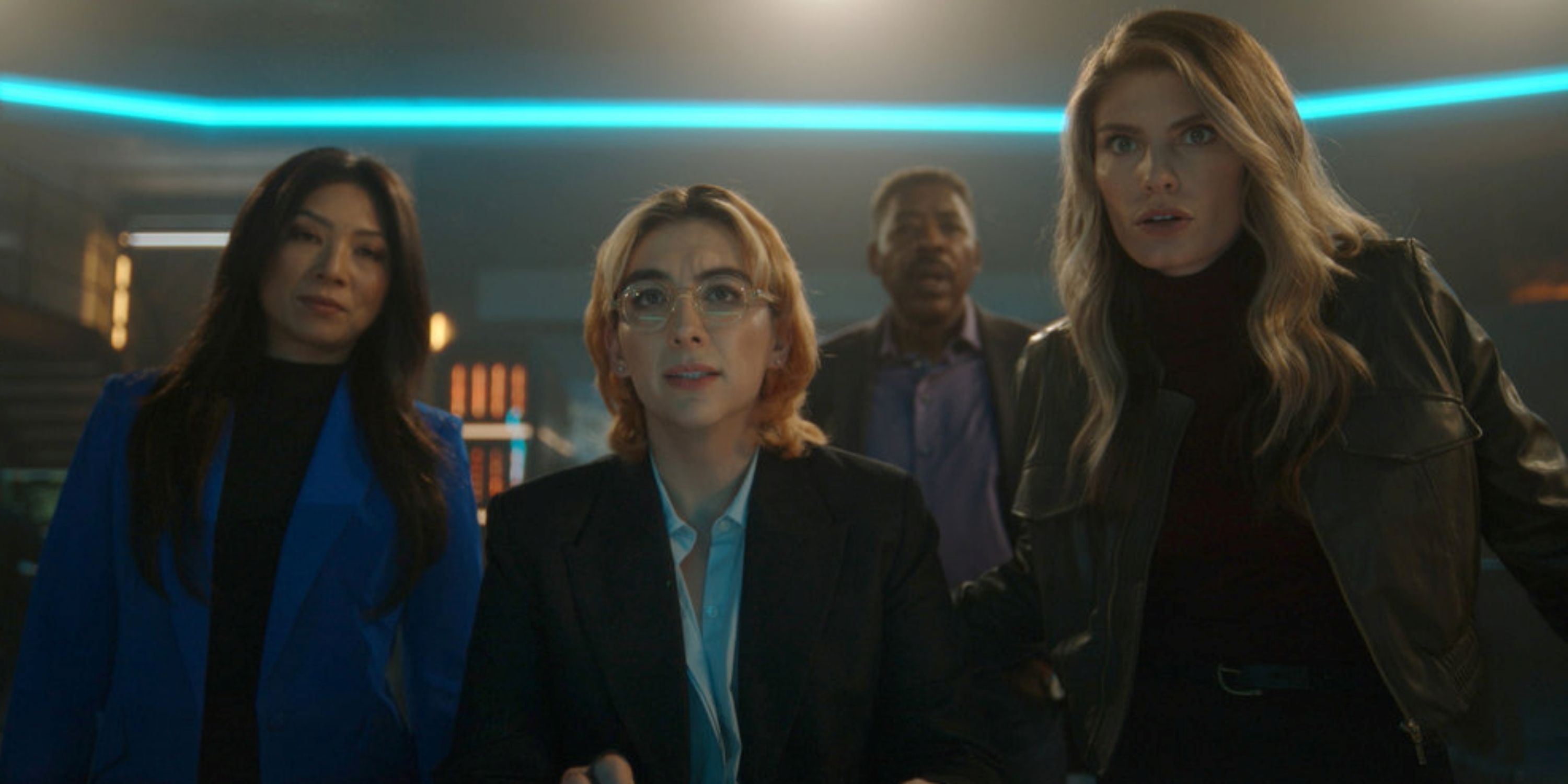The Big Picture
- Showrunners Martin Gero and Dean Georgaris decided on a three-year time jump to create urgency and conflict in Quantum Leap Season 2.
- The time jump allowed for more obstacles in the Ben/Addison relationship and gave the actors a chance to explore a wide range of emotions.
- Filming Season 2 straight after Season 1 was a result of a potential strike, giving the show the unique opportunity to produce eight additional episodes. The showrunners hope to continue the series in a regular manner, if the actors' strike is resolved.
[Editor's note: The following contains spoilers for Season 2 of Quantum Leap.]As if time travel wasn’t complicated enough, adding a three-year time jump to Season 2 of the NBC series Quantum Leap has led to further complications for Dr. Ben Song (Raymond Lee) and his desire to return to a life without leaping alongside the love of his life, fiancé Addison (Caitlin Bassett). Trying to reconcile the fact that his colleagues and loved ones have moved on with their lives believing him to be forever lost with what that means for him, Ben finds himself leaping into a government agent investigating unexplained extraterrestrial activity and crossing paths with a woman (Eliza Taylor) that he will meet again.
During this interview with Collider, showrunners Martin Gero and Dean Georgaris talked about how the three-year time jump came about, throwing a wrench into the Ben/Addison relationship, the advantage they’d had in going straight into shooting Season 2 once Season 1 had wrapped, how they pulled off shooting their midseason finale in Egypt, how Taylor and her character Hannah Carson (who we meet in “Closure Encounters”) will fit into this season, getting Tim Matheson to guest star, why it took nearly three months to shoot their first episode of the season, and how they’re laying the groundwork for what they think is an amazing Season 2 finale.
Collider: At what point did you decide there would be this three-year time job? What made you want to do that, and why was three years the right amount of time?
MARTIN GERO: It’s an unusual story because Dean [Georgaris] and I took over the show, so we were saddled with some of the choices that the earlier administration had made before we got in there. Thankfully, we came on midway through shooting episode one, so we were able to change a lot. But we felt like the series, in general, the way it had been set up, was just too mired in a lot of math mythology, and a lot of explaining rules of time travel and entropy and how butterfly effects works and Leaper X. They were all like super dope concepts, but to a casual viewer, it just was a lot of, “Wait, what?!” And then, on top of that, it really relegated our incredible supporting cast to just doing exposition. And so, for us, as we were talking about how to end the first season, we were like, “We need something that feels urgent and dire, and we need conflict, obviously, but can we find something that comes from an emotional space, as opposed to just a super plotting/time/math space?” He basically went inside a loop in the final episode of the show that would mess up the system a little bit. It bought us the why, of why it could happen. And then, three years felt like it was just a good amount of time to have everyone hurt for him, mourn him, and start realistically move on with their lives, so that him suddenly reentering everybody’s lives would cause maximum chaos and maximum drama. That’s what we wanted.
Did you always want to throw that romantic wrench into the loop too, to tear Ben and Addison apart?
DEAN GEORGARIS: Just from a basic storytelling standpoint, we wanted to create more obstacles. In any true love story, the more obstacles, ultimately the more satisfying. It also just allowed both Ray [Lee] and Caitlin [Bassett] to play emotions besides, “We’re solving it. We miss each other.” In most great love stories, you have different kinds of conflicts, you have to different kinds of trust, and you have to learn to let go, and those were all things that we couldn’t do. Our characters didn’t even really get to ask themselves, “Okay, wait a minute, what if this doesn’t work out?” The whole first season, every character was like, “We’re getting him home.” It was Martin that called me up and was like, “What do you think of a three-year time jump?” And I was like, “I think you’re a genius.” Immediately it meant, both for the present-day characters and for our two leads, that suddenly they can play almost every emotion. We can create a circumstance to give them conflict, we can give them heartfelt reconnection, we can give them jealousy, we can give them doubt, and then ask bigger questions. Time travel and the Quantum Leap program are this very interesting idea of being able to travel through time and, would you, if you could? The time jump allows us to do all of that.
Were you also thinking a lot about the tricky aspect of this new relationship, where Tom seems like a great guy and everybody loves him, and you don’t want all the fans to suddenly hate Addison for moving on with her life?
GERO: Yeah, we thought about it.
GEORGARIS: We thought about it quite a bit, and it’s one of the reasons why everyone on the show loves him. All of her friends who went through this with her like, “Wow, thank God for Tom. Tom is a really solid guy,” which I think helps. And then, the other part of it is just believing in your audience and trusting that, if you’re telling honest stories and emotionally honest stories, and we’re putting real hurdles in front of people who are in love, even if the audience has a moment like that, at first, we have faith that they’ll go on the journey with us and ultimately get as excited about it as we did, as writers. We get to imagine the whole journey, and then we tell it one piece at a time.
You pretty much went straight into filming Season 2. Was that something that you would have done even without a pending possible strike, or is that something you only did because the strike was possibly looming? Did that give you any extra filming time?
GERO: It was a direct result of a potential strike, which turned into an inevitable strike. We were in such a unique position because of an order of 18. When we started, that was gonna end up finishing in early February, so more than any show on their schedule, we were in a position where, if we just kept filming, we could film an additional eight episodes, we thought maybe before the end of the strike. It ended up being less than that, and they finished the last episode and a half without the writers present, but they had already been written and ready to shoot. So, we were in such a unique position to give them eight episodes of a show, in a regular way, which this year, that doesn’t exist. What we’re endeavoring to do now, if the companies come to their senses and make an equitable deal with the actors, is that the show will be able to continue on like a regular season of television and perhaps be the only show this year that just feels like a regular season of television.
GEORGARIS: Just to add to that, another nice happy accident of this three-year time jump is that the hard part is that you basically have a two-day turnaround to change everybody’s look, so you don’t have a lot of time to experiment with that, but the flipside is that it re-energizes our cast. Not that they needed it, but they were going into almost 200 days of filming. For them to not have to get to episode 19 and still have to deal with Leaper X, they got to play a lot more, which really helped, given the circumstances of shooting 200-plus days in a row.
Everything you do with the show seems impossible to pull off, just in general, but then you go shoot an episode on location in Egypt. What made Egypt the location you wanted to go to and what was it like to actually make sure you had an episode worthy of fully utilizing the location and justifying moving production there for an episode?
GERO: I developed a technique on how to do it in a network television show, on my show Blindspot. We went to 16 countries on five or six continents. We did everything except for Antarctica. For us, I knew it was something that we could do, but it just takes planning. The first season was a clustercuss, as far as us just trying to stay on task. This season feels more assured. Even though it was immediate, because we did keep going, it did give us an opportunity to be like, “Okay, let’s plant some poles. We know we’re gonna hit this, and this.” And we chose Egypt because, if you’re gonna go someplace, go someplace grand. It also felt like a place that we could, without spending a gazillion dollars, create a period location. Egypt in the sixties, there are place in Egypt that look that way now. With a little bit of Photoshop to take away some satellite dishes, it’s perfect. It was so great to do. Full kudos to Chris Grismer and the skeleton team we brought to Egypt with us. I was able to pull that off, but it was also in great thanks to the amazing film community that’s in Egypt. We used almost entirely local crew, and it was a magical experience for everybody. I can’t wait for people to see that episode. It’s like a Hollywood blockbuster. It feels so huge.
If you’re going to go someplace like Egypt, you want people to know that’s where you really are.
GEORGARIS: That’s exactly what Martin said. He was like, “Dean, we’re in front of the pyramid. They can’t think it’s green screen.”
GERO: We’re literally as close as you legally can get to the Sphinx. The access they gave us was so incredible.
GEORGARIS: And then, there was another one of these happy accidents that makes us look more clever than we are, in that it just so happened that was gonna be the midseason finale and the storylines that were colliding had this element of romanticism and intrigue. The threads were coming together and we were like, “Where would we wanna be discussing these bigger issues that feel somewhere between Casablanca?,” and Cairo in the sixties would have been your first choice, if it hadn’t already been our first choice.
What can you guys say about Hannah and how Eliza Taylor fits into this season? We know that she’s a regular this season, so we’ll be seeing her again. What can you tease about how she’ll be a part of the season following the end of episode three?
GERO This is a really hard one to talk about. It will be clear a little later in the season. All I’ll say is that she’s not a time traveler and she’s not an evil person from the future. She’s a regular character living her very standard, four-dimensional life, but has the kind of connection with Ben that means that we’ll run into her more than one time. What I can say is how freaking lucky we are to get Eliza Taylor. She’s an incredible actress. When she was available, I was like, “She’s not gonna wanna do this?” And then, the fact that she said yes was such a thrill. It’s such the opposite of the character she got to play on The 100 and it shows a whole different side of her. You’ve gotten just a taste of what she’s able to do. In later half of this first eight, there are some really incredible episodes with her.
GEORGARIS: Her presence in Season 2 is probably one of the things I’m most excited about. I’m so excited for the audience to get to know her character.
Is it particularly challenging, on a show like this, to figure out how to come up with not only a new character that you want to have come back, but how that would work with the show?
GERO: Yeah. Part of it is a real joy, and part of it is a real drag. In our season premiere, we burned off four incredible actors. To have Melissa [Roxburgh] and Aaron [Abrams] and P.J. [Byrne] and François [Arnaud], they’ve all been the lead of a TV show, at one time or another. To have them all in one show, there was such excitement. Some of the feedback we’ve been getting from people is just like, “Wait, how do we see this team again?” But that’s it. That’s the show. There’s a certain etherealness to it. Same with Janet Montgomery in episode two. We’ve been able to get such incredible performers this year, but it harkens to an early era of television, where the TV guest star was a big deal and there was an impermanence that made it exciting when, for this episode, they’re gonna come play in the sandbox. So, it’s been nice to have. We’ve been overwhelmed with the level of talent that we’ve been able to attract this year.
When you have a show that seems like it could have endless guest stars, Tim Matheson is a great choice to have guest on the show. After the teaser that we’ve gotten for episode four, what would you say to tease him appearance?
GERO: That’s a perfect example. We can’t get Tim Matheson as a lead on our show. He’s unavailable. So, it’s great to have him come do our show. That episode is a little unusual. It’s a little lighter than we typically do. He’s phenomenal in it. But it is one of our most emotional episodes. It’s able to unpack a lot between Ben and Addison that has been fizzling under the surface. Ben has been able to say some stuff out loud, but Addison has been very careful not to. That isn’t the case in episode four. Even in writing and producing it, I was like, “What a good episode.” And then, watching the first cut, the first time, Ray and Caitlin, the whole time, had been like, “This one’s so special,” and I was like, “Well, we’ve got a couple of huge Tim Matheson fans, I guess.” And then, I realized, “All right, what they did with that material is brutally incredible.” I can’t wait for y’all to see it.
What has been the most challenging leap, so far this season, either just logistically or for whatever reason?
GERO: I have to say that it was 201. That was a big episode. It was our season premiere, so it had been scheduled for nine days. I called in all these favors for these guest stars and said, “Please come for eight days,” because one day was on the HQ stages. And they were like, “Yes, absolutely.” And then, it just hit snag after snag. Someone got COVID and we had to shut down. Someone got really sick, not COVID-related, and we had to shut down. We shot about an hour and a half outside of L.A. during February where, for the first time ever, a blizzard happened, and we had to shut down. Every time we had to shut down, that guest cast is busy, so they all had other things to do. So, what should have been a nine-day commitment took us almost three months to shoot. We would do a day here, and then everyone would go around the world, and you’d have to pull everyone back. You’d be able to shoot for eight hours, and then everyone would go away and have to come back. We could never have done that, if we had not been picked up so early. It ended up being advantageous for the show. We even shot a miniature, but it’s very rare to use TV miniatures nowadays, or just miniatures for visual effects. The satellite dish was a miniature that we had built. We were gonna blow it up on the backlot of Universal Studios, and it’s still a big explosion, so we had to do it outside. It rained that night, so we couldn’t shoot it because of the scale of the rain. Aside from it not matching anything we shot, the scale of the rain was off, so we had to come back and do that the next night. So, it just felt like the episode that refused to ever be finished filming. I have to say I’m just so relieved it’s out in the world and done now, and we don’t have to touch it anymore.
Was there any kind of backup plan?
GERO: No. There was a moment where we thought we might have to recast one of the guest stars, just because we were gonna lose them, and then reshoot some of the stuff and we were like, “Oh, my goodness.” The great thing about the show this year, and I think you’ll see it in the production quality, is that the post team had so much time with it. The vis effects are on a whole other level this year. The scoring is on a whole other level this year, and it was already incredible. The shows feel finished in a way that I think is rare for network TV, in such a great way.
You set this up in a way that Addison doesn’t have to be the only one communicating with Ben as a hologram. When it comes to who will be the hologram in any given episode, do you always start with thinking about whether she’d be the right one at the center of it, or do you consider everyone and pick the best choice every time? How does that work?
GEORGARIS: Addison and Ben, that’s our primary relationship, so more often than not, Addison is the hologram. When she’s not the hologram, it’s fun to explore what she would do and how she feels about herself. But we love the episodes where other people end up being the hologram. Sometimes it’s by circumstance, where they happen to know something about the leap that’s going on, like in Season 1 when Jenn leapt in because of her legal experience. Sometimes it’s because fate pulls someone away. We have an episode where pretty much everyone is not available, so someone that you don’t expect ends up being the hologram. What’s really fun for the writers’ room is that you get to write the hologram differently and you get to write their advice differently. It really freshens up that dynamic, in a way that’s organic, as opposed to trying to come up with different shtick for the same actor.
How do you decide on the time periods you want to explore, and specifically, what can fans expect from the episodes set in 1692?
GERO: Everything is informed by the episode. Whatever the idea is, it’s about the best time period to put that in. And also, we’re trying to mix it up. We’re trying to make it so that every time you tune in, it feels viscerally new. We don’t wanna just do a nineties episode, and then an eighties episode, and then a ’99 episode. We wanna spread it out a bit. Sometimes it’s the whole raison d’etre. We’re doing a Salem witch trial adjacent episode in the 1600s. That’s the only time you can do that episode. Reall, one of the true genius moves from the studio, because it wasn’t something I would have even known to ask for, was to put the show in L.A. Being in L.A. and shooting in L.A., we have an infrastructure of backlots and standing sets that don’t exist anywhere else. So, when you’re essentially doing a pilot with every episode, and a whole new world with every episode, to be able to pull and know that there happens to be a space shuttle that they can drive over to you today, allows us a freedom in our creativity that is really exciting.
Have you known your ending of Season 2 and how that will carry into a third season since the beginning of the season?
GERO: Yes. That’s how we like to work. For these shows not to feel all like middle, they have to feel like a book with a beginning, middle and end, in a series of novels. For us, when we were talking about the season, this season, to be able to build something as a whole, knowing what the end is and having the beginning be able to inform that, I think you’ll be very satisfied. I can’t even talk about it because it will give too much away, but we’re laying the groundwork for a pretty amazing finale, I think, so subtly that I think people won’t even notice until we get there.
Quantum Leap airs on Wednesday nights on NBC.

